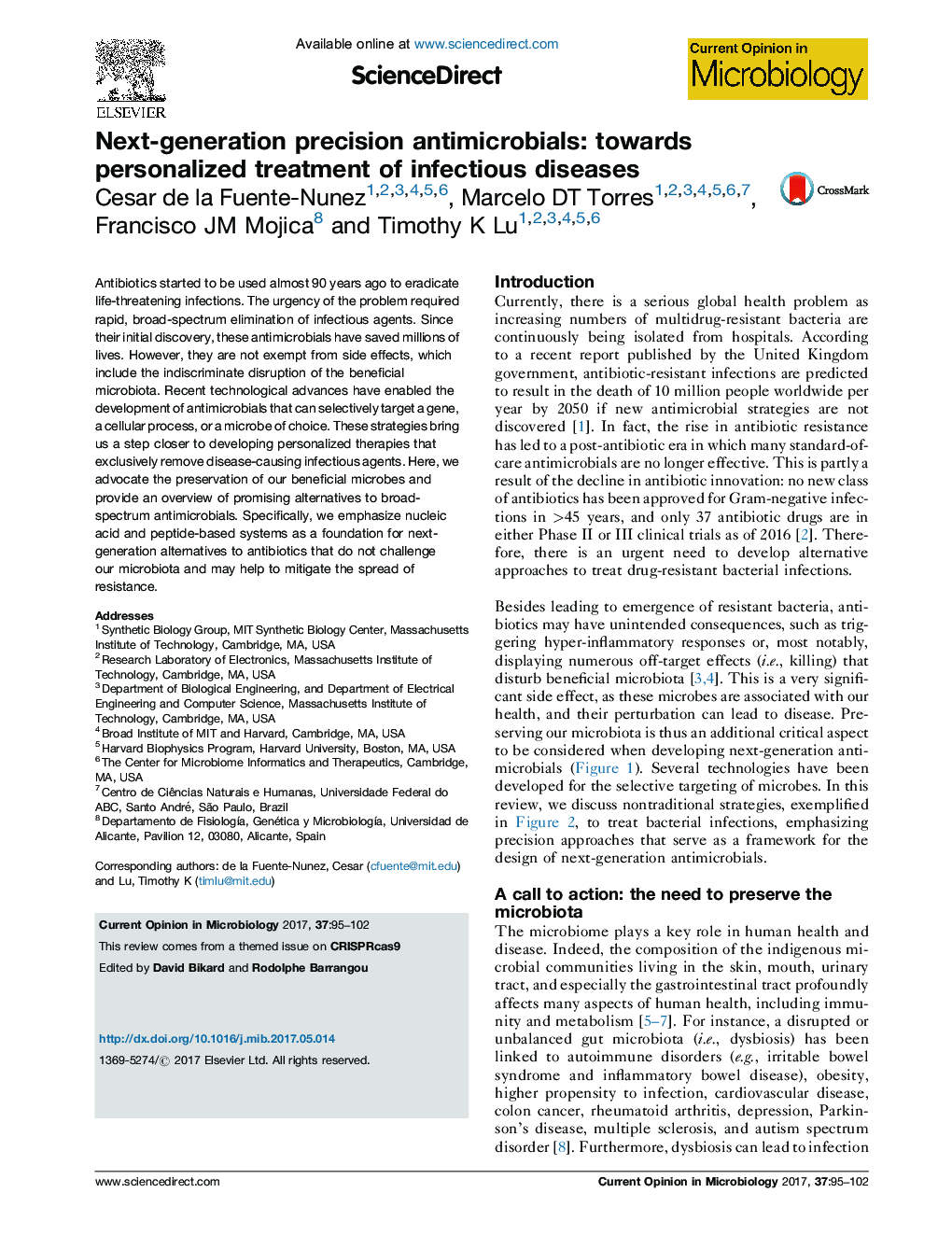| Article ID | Journal | Published Year | Pages | File Type |
|---|---|---|---|---|
| 5671731 | Current Opinion in Microbiology | 2017 | 8 Pages |
â¢Precision antimicrobials represent a novel approach for treating infectious diseases.â¢The role of the microbiota in health and disease is indisputable and so is the need to preserve these microbial communities by using specific therapies.â¢Nucleic-acid and peptide based antibacterials represent promising technologies to achieve selective killing of microbes.
Antibiotics started to be used almost 90 years ago to eradicate life-threatening infections. The urgency of the problem required rapid, broad-spectrum elimination of infectious agents. Since their initial discovery, these antimicrobials have saved millions of lives. However, they are not exempt from side effects, which include the indiscriminate disruption of the beneficial microbiota. Recent technological advances have enabled the development of antimicrobials that can selectively target a gene, a cellular process, or a microbe of choice. These strategies bring us a step closer to developing personalized therapies that exclusively remove disease-causing infectious agents. Here, we advocate the preservation of our beneficial microbes and provide an overview of promising alternatives to broad-spectrum antimicrobials. Specifically, we emphasize nucleic acid and peptide-based systems as a foundation for next-generation alternatives to antibiotics that do not challenge our microbiota and may help to mitigate the spread of resistance.
